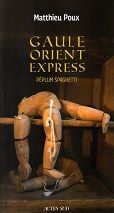Voici l'analyse que je viens de trouver concernant l'ﺣ۸tymologie du nom des Vacomagi, peuple celtique du centre de l'Ecosse actuelle (Moray Firth) :
Rivet & Smith, p. 484-85 :
-----------------
DERIVATION. Jackson PP 136 observes that this name 'cannot be said to be Celtic with any confidence', but in view of the Continental analogues, some of them with typically Celtic suffixes and formation, we need not be in doubt. Rhys (1904) 321 thought *vaco- a borrowing from Latin vacuus, later vacus (the borrowing > gwag ' empty ' does in fact exist in Welsh), giving a sense '(people of the) open plains', but Watson CPNS objected that this could not have been borrowed at an early enough stage to be present in Ptolemy; more fundamentally, it is not credible that the name of a tribe in Scotland should be formed with a Latin borrowing. The root is now widely accepted among Continental scholars as *uek- *uak- (Pokorny 1135) 'gebogen sein', the Vacomagi being 'die Bewohner der gekrﺣﺙmmten Felder'. From the same root comes Latin vaccilare and (via *uek-to-) Welsh gwaeth, a comparative, 'schlechter '. Ancient river-names include Vacalus, Vacua, and there are place-names Vacontium (Ptolemy II, 15, 4) in Pannonia Inferior, perhaps Vagoritum (Ptolemy II, 8, 7) of the Arvii in Gallia Lugdunensis, and ethnic names Arevaci, Bellovaci, Vaccaei, etc. ; together with divine names and personal names listed by Ellis Evans GPN 475-76. Whether all belong in effect to Pokorny's root, and whether the sense proposed fits them all, must remain in some doubt, which Ellis Evans expresses by listing the names in his Appendix. For -magi, see CAESAROMAGUS. This is recorded, though not frequently, in other ethnic names such as Vehomagi, Vercomagi (Holder H. 375). 'Crooked' or 'bent fields', as Pokorny expresses the sense of the Vacomagi, is not a particularly transparent concept; if the tribe typically had small, 'irregular fields' in hilly country, the sense might just fit, but one feels it to be unlikely that *magos 'field, plain ' would have been used for fields small enough to be perceived as 'crooked'. Ellis Evans's caution seems perfectly justified.
--------------------
Il existe en effet un mot breton : gwag, pour dﺣ۸signer ce qui est mou, flasqueux ...
Je m'excuse auprﺣ۷s des Bellovaques. C'est pas moi, c'est l'autre.
Les "Guerriers mous", c'est pas trﺣ۷s glorieux, comme nom !
Dﺣ۸fendez vous, si vous ﺣ۹tes des hommes.
JCE





